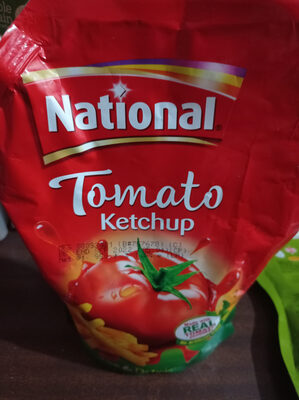
Barcode: 620514005836
Ketchup
HALAL
📝 Reason: All ingredients in the product are either plant-based or listed in the Halal_ECodes_list, with no presence of Haram or Doubtful ingredients. The product does not contain any meat or alcohol, and there is no indication of cross-contamination with Haram substances. Therefore, the product is considered Halal.
📄 Certificates: None
Ingredients:
Details
Introduction to Ketchup and Its Halal Status
Ketchup is a popular condiment enjoyed by many around the world. However, for those following a Halal diet, understanding whether Ketchup is Halal is crucial. This article will explore the Halal status of Ketchup, detailing its ingredients and explaining why it meets Halal dietary requirements.
Halal Status of Ketchup
The Ketchup in question is deemed Halal. This determination is based on a thorough review of its ingredients, all of which are either plant-based or included in the Halal E-Codes list. Importantly, there are no ingredients derived from Haram sources, such as meat or alcohol, ensuring that consumers can enjoy this condiment worry-free.
Ingredients Breakdown
Let’s dive into the ingredients present in Ketchup and examine their Halal status:
- Tomato Paste (8% tomato solids): A plant-based ingredient that provides the primary flavor of Ketchup. It is generally considered Halal.
- Sugar: Another plant-derived component, sugar is universally recognized as Halal.
- Vinegar: Produced through the fermentation of Halal sources, vinegar is generally Halal as well.
- Salt: A mineral compound that is inherently Halal.
- Mixed Spices: These are typically derived from plant sources and are usually Halal.
- Xanthan Gum (E415): Included in the Halal E-Codes list, Xanthan Gum is considered Halal.
- Carboxymethyl Cellulose (E466): Also listed in the Halal E-Codes, this thickening agent is generally Halal.
- Sodium Benzoate (E211): Another ingredient found on the Halal E-Codes list, Sodium Benzoate is recognized as Halal.
Understanding E-Numbers in Ketchup
In the context of Ketchup, E-numbers refer to the various food additives that are commonly used in processed foods. Here’s a closer look at the E-numbers present in Ketchup and their Halal status:
- Xanthan Gum (E415): It is derived from the fermentation of sugars, generally produced by the bacteria Xanthomonas campestris. This ingredient is Halal-certified and is widely used as a thickening agent in cooking.
- Carboxymethyl Cellulose (E466): Another widely accepted food additive, CMC is often derived from plant cellulose and is utilized for its thickening and stabilizing properties. It is Halal as per its certification.
- Sodium Benzoate (E211): Acting as a preservative in Ketchup, Sodium Benzoate is recognized as Halal. It extends the shelf life of the product, making it safe for consumption.
Conclusion: Ketchup is Halal
To sum up, Ketchup is an excellent option for those adhering to Halal dietary practices. With all ingredients either being plant-based or listed among Halal E-Codes, consumers can confidently include it in their meals. The absence of Haram substances and the low risk of cross-contamination further affirm its Halal status.
In the world of condiments, Ketchup stands out not only for its delicious taste but also for its accessibility for those following Halal diets. Enjoy your meals with Ketchup, knowing that it aligns with your dietary choices!

